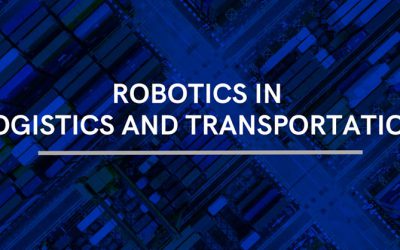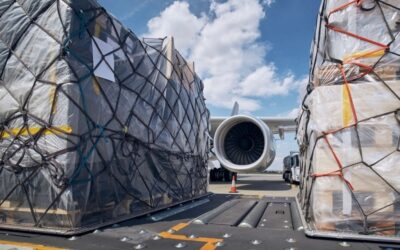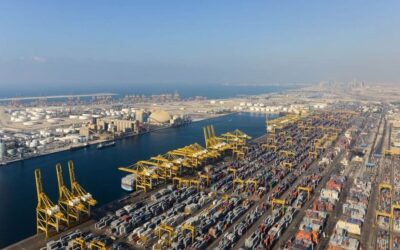How is Blockchain Going to Affect the Logistics Industry?
Blockchain, the technology behind bitcoin, is all set to bring massive change to the logistics industry, bringing with it potentially huge benefits.
The Challenge of Logistics
Conventional and often overlooked in conversations about business, logistics is an increasingly sophisticated field.
In a globalized market, supply chains have become long and complex. Something as simple as a cheap plastic toy might be produced in China using oil imported from the Middle East, then shipped to a warehouse in Germany where it is packaged, that is printed in Eastern Europe and finally ready to be distributed across the world. Along the way, it passes through the hands of dozens; if not hundreds; of companies involved in freight, manufacturing, storage, and border control.
The methods used in logistics have been evolving since the birth of commerce, and some of those in place today, existed before global networks and modern computing. People have tried all the possible means to produce the best of results, however, the results are often unsatisfactory. Supply chains have become tangled and filled with delays in payments and handoffs. The complexity creates a lack of transparency, making it hard for businesses, consumers, and national authorities to be sure of what is happening. Attempts to increase supervision only added to the complexity.
So how can we cut through the tangle and make logistics more efficient?
New Ways of Sharing Information
Managing logistics is all about information. If people know where an item is and how it got there, then they can manage its journey better and make sure that it has arrived in the condition it should.
Blockchain, which has emerged as one of the most talked about technologies of the recent years, is all about sharing and storing information with a distributed ledger online.
Blockchain is a distributed ledger system. Everybody involved has a copy of an ongoing record. Only one person has authority to make changes to it at any time, and the only changes they can make are to add information. Each element in the chain is linked to those before and after. This makes it impossible to go back and alter or removing something from the record of what came before, because previous entries don’t exist in isolation.
Because the record is kept by everyone involved, there’s transparency over what has happened. There’s no single central point through whom all transactions have to go. This reduces the risk of failure or fraud. It also means that transactions can be carried out more quickly, as interactions can take place directly between any two people in the system.
Also Read: How Robotics Is Impacting Logistics And Transportation
Blockchain in Logistics
So what does this mean for logistics?
Firstly, it allows more transparent shipping records. Delivery companies have taken an interest in this, with UPS joining a group dedicated to applying blockchain in the industry. Blockchain could be used to ensure up to date records that are accessible to both companies and customers, and are immediately updated following handoffs. This way, everyone knows where in the chain a package is.
This can be used to track the conditions of the goods at various points as well as where they are in the system. Walmart has taken out a patent relating to this, for smart packaging that would record the condition in which goods are kept in along their journey. This could both simplify and improve the accuracy of any investigation into damage to goods in transit. As a result, people and companies could be held accountable for failures and improvements could be made in the right place in the chain. The other recent example is USPS (United States Postal Service), filing patent for user identity verification. The patent also refers to a blockchain component that may be configured to receive records from the user and add the records to a blockchain.
Walmart and other companies are also collaborating with IBM to apply data management to the food supply chain. This should speed up the delivery of groceries, reducing spoilage. It will also allow the date and place of origin to be accurately tracked, for better ‘best before date’ recording.
This sort of information will give consumers better information about who has been involved in providing their goods. For ethically conscious consumers, it will be easier to find out whether their goods have been provided by companies that take care of the planet and their workers. Provenance is working on providing this sort of authentication work. The same techniques would make auditing easier, both internally and when external authorities take an interest.
As well as providing better services, blockchain will speed up transactions within the logistics supply chain. Peer-to-peer interactions allow instant payments from one company to another, without the involvement of banks and other financial institutions, thus reducing the processing time and cost as well as increasing the efficiency. Blockchain-based smart contracts can be set up so that invoicing, payments, and receipts are committed automatically as soon as an item is delivered. Faster payment and processing means a faster supply chain. One such example from the Middle East is Qafila, digital logistic startup which promises to simplify the global shipping, end to end. One of the key advantage is the use of blockchain in the overall ecosystem for faster and more secure transactions.
Looking for simplifying your shipping and logistics requirements? Click here to talk to one of our expert who can simplify your business requirements — It’s totally free!
Supply chains are complex things. Today, thanks to blockchain and tech startups which are helping this century old industry, supply chains is transforming into a process that is a whole lot simpler.






